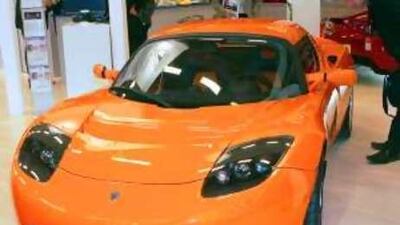Gulf petrochemical producers are accelerating plans to replace low-value commodity exports with value-added plastics in a bid to boost revenues, add jobs and make better use of the dwindling natural gas supplies that are the lifeblood of the industry. A shortage of low-cost natural gas, and in some cases high unemployment, is pushing regional governments to reorient their petrochemical strategies to more sophisticated manufacturing, an industry trade group said last week.
Saudi Arabia and Abu Dhabi, which are leading the way, are locked in a "healthy competition" to provide ever larger industries that convert raw plastics and chemicals into products such as multilayer packaging films and car bumpers that are exported across the world, said Abdulwahab al Sadoun, the director general of the Gulf Petrochemicals and Chemicals Association. "This is really critical in a country like Saudi Arabia, where the demographics are alarming," he said. "Sixty to 65 per cent of the population is under the age of 25 years old, so you need job opportunities for people.
"Now we are exporting raw materials - polyethylene, polypropylene to China. And it is processed over there and shipped all the way back to the Gulf." The existing petrochemicals model relies on cheap inputs of natural gas and large economies of scale to produce basic chemicals for export. The model is highly profitable but is capital-intensive, not labour-intensive, and yields few additional benefits for regional economies.
Chemical conversion plants, however, require a much larger labour component and can generate 10 units of economic output for each unit of input from basic chemicals plants, Mr al Sadoun said. Governments are also weighing a dwindling supply of natural gas, which is also needed for power generation and export. Most major chemical plants in the region have had access to cheap ethane, a component of natural gas but new plants will be required to use naphtha or other derivatives of crude oil, which are more expensive.
Andrew Liveris, the chief executive of Dow Chemical, this month predicted a "rising tide on gas and ethane price" across the Gulf and said Dow's ethane-based joint venture with Saudi Aramco at Jubail would be "one of the last large complexes". The switch in feedstock would allow regional companies to provide a wider range of products but they would have to cut costs through integration to continue enjoying their competitive advantage on the global market, Mr al Sadoun said.
The economic calculation becomes more precise because of shipping and labour costs as chemical producers invest further down the value chain, he said. Producing plastic bottles, for example, is a bad choice for export because each unit is cheap but takes up a significant amount of space in shipping. Labour costs are also an important variable, he said, because people in GCC countries would require much higher salaries than would employees at rival companies in east Asia.
The Gulf's niche, Mr al Sadoun said, would be in high-technology conversion industries that required workers of a higher skill level. "One example is the multilayer film that is used in food packaging," he said. "The Chinese model is focused on shopping bags ? our target is towards high-value-added, sophisticated products that have a market in Europe and the United States." The Abu Dhabi Government has already moved in that direction, with its Polymers Park project, a cluster of conversion companies based in Musaffah. Abu Dhabi Holding announced last month it would bring in an unnamed European producer to establish a plant producing fabrics from plastics. Low & Bonar, a UK maker of artificial turf, has already broken ground on a plant there.
Senaat, a private company launched this year, plans to set up five or six joint-venture companies in Abu Dhabi focused on plastics conversion. So far, it has signed up a cable manufacturer and a pipe maker and plans to invest about US$150 million (Dh550.8m) in total over three years. cstanton@thenational.ae

